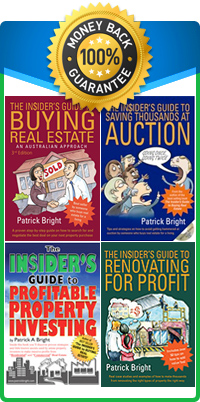Int: +61 2 9904 4722
You are here
Home ›6 Tips for being a successful property investor
6 Tips for being a successful property investor
We’ve all read about the get rich quick stories where property investors build a large portfolio in a short period of time by using equity in one property to purchase another one and so on.
On the surface it all looks pretty good but often there’s not enough equity in the overall portfolio to keep it afloat if any undesirable outcomes occur such as an increase in interest rates, long tenant vacancy periods or a drop in market values
In many cases in these situations, the inexperienced investor will choose cheaper properties simply to increase the size of the portfolio instead of saving up a bigger deposit to purchase quality properties that will be able to better withstand a market downturn.
In addition if you don’t have a financial buffer then your portfolio can very easily come crashing down like a deck of cards especially if you’re relying on the rental market to go up to be able to pay the mortgages.
Successful and sustainable property investing is very much about selecting the right types of properties in great locations.
Ask any seriously wealthy property investor who has seen a few property cycles and they will tell you that you should purchase property in areas where there has been good demand in the past, demand for it now and likely to be good demand well into the future.
Don't get hung up on how many properties you buy as you’re better off having say two million dollars invested in three or four quality properties than have two million dollars invested in 10 average ones.
Here are my top tips for getting on the right track to becoming a successful property investor:
HAVE A PLAN - By writing down clear goals for the future growth of your portfolio you should be able to determine how much money you’ll need for the necessary deposits and incorporate this information into your overall financial plan.
Make sure you work out whether you’re buying properties to hold for the long-term or whether a buy, renovate and sell strategy would be better suited to your needs. You will need to factor in any major changes to your likely income (e.g. plans to start or grow your family) or expenditure streams when examining the timeframes needed to save the deposits.
BE A FARMER NOT A HUNTER - There are people who are prepared to farm and cultivate a crop, with a several-year outlook and there are those who want a return almost immediately (the hunter mentality). Unfortunately most people have a hunter mentality. They throw a spear, and want an immediate result which in my experience is not the mentality of a smart, seasoned property investor. As the old saying goes “wealth is the transfer of money from the impatient to the patient”.
TREAT YOUR PORTFOLIO AS A SMALL BUSINESS - If you want to maximise the return on your investment you must ensure you are receiving the best return possible on it. Regardless of whether you have one, three, five or more properties you need to treat them all like a business and undertake regular reviews no less than six monthly.
INVEST IN GOOD ADVICE - Good property investors accept that they don’t know it all and are willing to pay for good advice. The old adage “you get what you pay for” rings true so if you’re not paying for the advice you’re receiving then it’s probably not worth following.
Invest in a good accountant, solicitor, building inspector, buyer’s agent, quantity surveyor, property manager, finance broker, financial advisor etc. Ask your advisors if there are any financial changes that need to be implemented now to make it easier to achieve your property investment plans for the coming years.
PROTECT YOUR CAPITAL - The preservation and return of your capital is more important than the return on it. Get that around the wrong way and you’re very likely to do your dough. Always remember that if an investment opportunity is offering a higher than average return for the asset class there will be a reason for it and it’s generally a higher risk investment.
You need to decide: am I an investor or speculator? It’s ok to speculate just know you’re doing it and don’t do it with more than 10% of your net worth as if you do your dough you can recover from a 10% loss. It’s much harder to recover if you’re losing much more than that at any one time.
TAKE ACTION - The world is full of broke procrastinators. Good property investors take action. They’ve done their research, they know when and where to buy and they’re confident with their investment.

